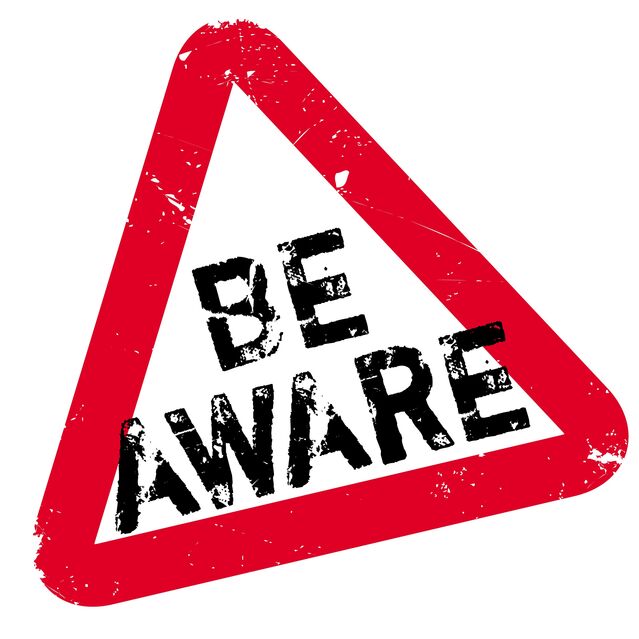Career
Visibility Traps at Work and How to Avoid Them
Pitfalls that can hold us back from shining.
Posted February 15, 2022 Reviewed by Abigail Fagan
Key points
- Increased visibility at work has many advantages as well as drawbacks.
- The drawbacks of visibility include a sense of over-responsibility, the ‘reward’ of extra work, and gender backlash or resentment from others.
- You can mitigate these drawbacks by asking some probing questions to coach yourself to positive visibility.

Much has been written on the advantages of visibility for career advancement in general, and for leadership transitions in particular. In a nutshell, if your company doesn’t know about your unique talents and abilities, it cannot fully leverage you as a resource. However, there are also some downsides to visibility that can make it a less attractive strategy to pursue. It’s a paradox that we need to be visible – making ourselves and our contributions known is important – yet we need to navigate the potential traps this can pose.
Let’s look at three of the dangers of being too visible (although these are not mutually exclusive) and some practical workarounds:
1. Increased Weight of Responsibility
When we are visible – when we're good at something and people know it – this can either provoke a new sense of responsibility or amplify an already overdeveloped one.
For example, Amy Cuddy refers to her TED talk as “the beginning of the too much attention on me thing.” A huge outpouring left her feeling an overwhelming sense of responsibility for 62 million listeners/viewers, without knowing how to deal with it.
Some of my coaching clients already experienced a heightened sense of responsibility that gets triggered when faced with a problem in their organization. Part of their identity is wrapped up in being a ‘fixer’ – a problem-solver – so they go into ‘I need to fix it’ mode. One client’s instinctive response to a challenge is “If not me, then who?” For her, this began a cycle of volunteering to problem-solve. Her visibility has become problematic. Yes, she is becoming more visible because of her good work and willingness to help, but she finds herself being pulled in many directions, receiving more invitations and more work (see point 2, below).
Think about:
- What are my visibility goals? Understanding how visibility can help you achieve your career goals or exercise your contribution is a great way to anchor your visibility in your professional “why.” This can also be a great criterion to use when assessing visibility opportunities.
- How can you help people to help themselves? If you think of yourself as a facilitator, not a superhero seeking to save everyone, how will you behave differently? For example, share or designate responsibility, encourage others to find solutions. By using your powers of facilitation, you can be visible in supporting others.
Chances are, you’re not responsible for everything and everyone. If you do tend to assume the fixer role, try moving from ‘If not me then who?’ to ‘If not me, then when we’ as a way to create a sense of shared responsibility.
2. Visibility Is Rewarded with More Work
When you are visible as the go-to person or a problem-solver, it can often bring you more work. Sometimes that’s a good thing, but the downside is being given things to do that you don’t enjoy or that take you away from your normal job, so you can’t get your own work done. Or when you’re asked to do work you are good at, but it’s not what you want to do – there’s no satisfaction. Most people already have enough on their plate, so if you are becoming more visible, the ‘reward’ shouldn't be getting even more work to do.
I have a coaching client, Jean, who is proactive, efficient, speaks up and makes herself visible. This has made her a sought-after contributor. She is called in to various departments to serve on different task forces, to weigh in and do all sorts of things beyond her remit. It’s great that she gets to expand her influence and work on different projects, but the downside is that she doesn't get to do the work that gives her meaning and satisfaction.
Achieving visibility is important for helping us make ourselves and our work known, building our network, and advancing. But if it only brings more work, it has serious consequences.
Think about:
- How does a new opportunity or piece of work align with my career goals? Is this an opportunity to grow in a direction that is important and of interest to me? Do I have time for it?
- If not, this is an opportunity to say no (or practice saying no). While it can be tempting to bask in the glow of being the go-to person, if a request doesn’t meet your criteria (including you not having any more time), this is also is an opportunity for you to pause, reflect, and negotiate as part of setting boundaries so that you manage your time, energy and expectations.
3. The Gender Backlash
There can be a gender backlash against visibility, although adverse reactions aren't restricted to women. Being visible shines a spotlight on you – which can make you a target. When Amy Cuddy’s TED talk came out, there were many attacks on the validity of her power pose or ‘fake it till you make it’ research – including vicious academic backlash.
If you suddenly become the go-to person for billing, or ‘the SAP guru’, the positive is that you are recognized and known for this. But this visibility can also draw negative attention, whether through professional jealousy or resentment, or because people want to attack your process. We certainly see examples of that happening in the media.
Being visible, by definition, attracts attention, whoever you are. This can be especially problematic for women, who are often called upon to manage the double bind and also receive more personal criticism than men.
Think about:
- How can you use your emotional intelligence? Ask yourself: What will visibility bring me? And what might I need to give up to get it? How do I about feel this? How can I bring some empathy and self-compassion to this, to make an informed decision on how to move forward?
- How can your self-care practice support you? How will you exercise kindness and compassion on yourself? That is, managing any stress and anxiety arising from the decision to pursue visibility; or negotiating and erecting boundaries to manage your new visibility or higher profile. What forms of self-care will you use?
Being visible and widely known for your skills and qualities is necessary for your career progress and makes you an asset to your organization. It’s important to recognize that there can be a downside to consider, too – so you can take informed steps to manage and move forward with strength and confidence.




